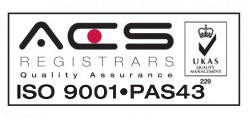Starting from where we ended last week, we will now take a look at the differences between petrol and diesel engine fuel systems:
When diesel-driven vehicle first arrived in the market, it was not difficult to tell how they were different from petrol-powered vehicles due to heavy noise generated while the cars were running. Diesel cars used to produce a heavy and distinct rating sound while being revved or idling. However, those differences have been eliminated in the new-age diesel cars which produce no sound any longer. Modern-day diesel engines have undergone several changes and installation of sound-proof system has made it extremely difficult to understand if the car is running on diesel or petrol.
The fuel system pump in a petrol engine works differently from that in a diesel engine. In a diesel engine, it performs within tighter tolerance and its internal pressure is much higher if compared with that in the petrol-powered vehicle while running. The latest diesel cars run at from 350 to 1600 bar. Diesel functions as lubricant for the system components lining the fuel supply channel, preventing them from frictions that may happen if there is a contact between the metal components during their operation.
Diesel in Petrol – What Happens to Fuel System
Several problems may take place if unleaded is accidentally loaded into a diesel tank. Unleaded petrol does not feature lubricating qualities. It implies that if someone tries to run a diesel fuel pipe carrying unleaded petrol in it, there will be metal-to-metal contact between the components in the pump body and as a result, those metals will start grinding against each other and small pieces of metals will contaminate the fuel further. These metal fragments will then start working through the vehicle’s fuel system, resulting into further damages to other parts as well as blockages.
The next big damaging character of unleaded petrol is it functions as a solvent and so can produce detrimental effects on the fuel system seals which, more than often, require replacement.
We will shed more light on it in the next week and until then; you have to keep waiting…..






